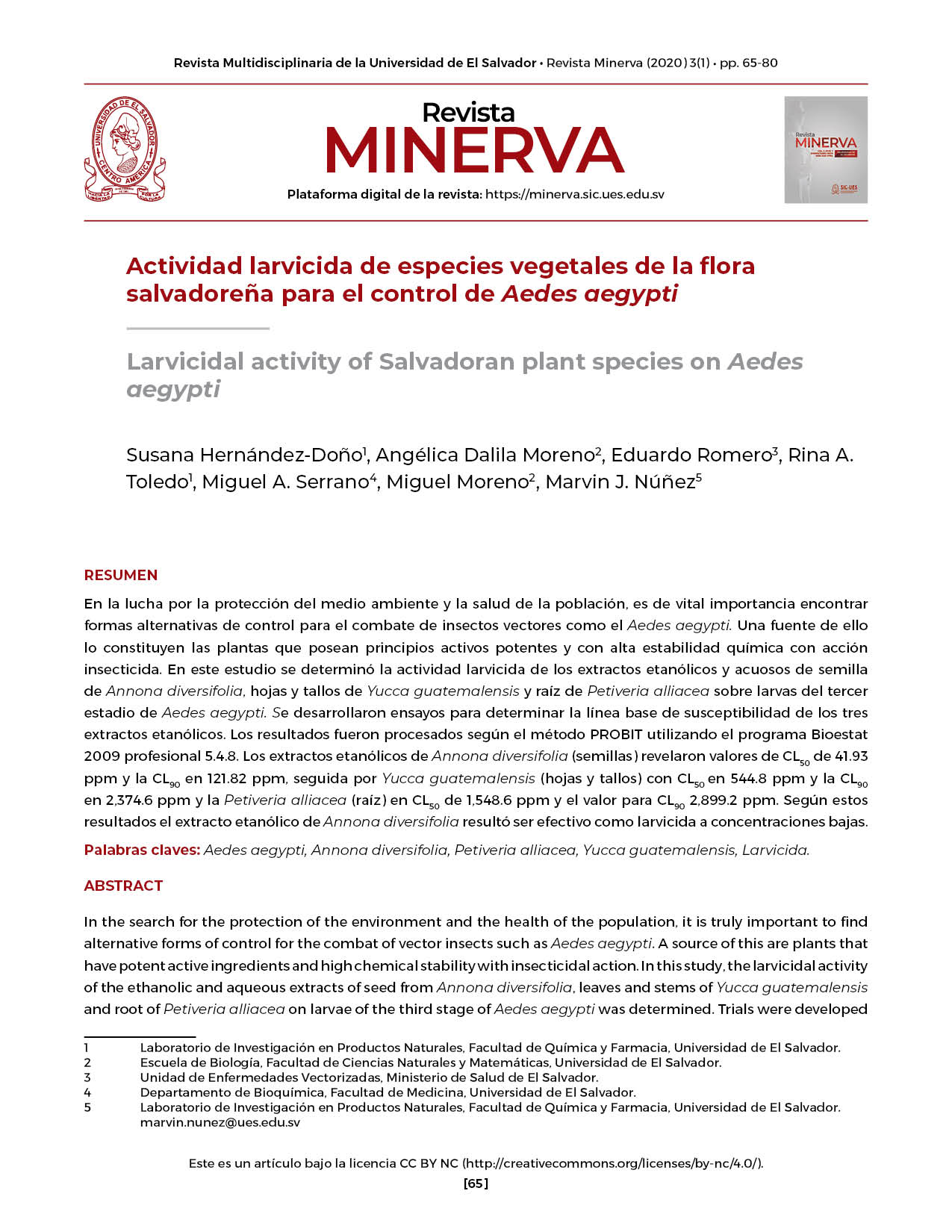Abstract
In the search for the protection of the environment and the health of the population, it is truly important to find alternative forms of control for the combat of vector insects such as Aedes aegypti. A source of this are plants that have potent active ingredients and high chemical stability with insecticidal action. In this study, the larvicidal activity of the ethanolic and aqueous extracts of seed from Annona diversifolia, leaves and stems of Yucca guatemalensis and root of Petiveria alliacea on larvae of the third stage of Aedes aegypti was determined. Trials were developed to determine the baseline susceptibility of the three ethanol extracts. The results were processed according to the PROBIT method using the professional Bioestat 2009 program 5.4.8. The ethanolic extract of Annona diversifolia (seeds) revealed LC50 values of 41.93 ppm and the CL90 at 121.82 ppm, followed by Yucca guatemalensis (leaves and stems) with LC50 at 544.8 ppm and the CL90 at 2,374.6 ppm and Petiveria alliacea (root) in LC50 of 1,548.6 ppm and the value for CL90 2,899.2 ppm. According to these results, the ethanolic extract of Annona diversifolia proved to be effective as a larvicide at low concentrations.

This work is licensed under a Creative Commons Attribution 4.0 International License.
Copyright (c) 2020 Authors who publish in Revista Minerva agree to the following terms: Authors continue as owners of their work, assigning only dissemination rights to Minerva Magazine under the standards of the Creative Commons Attribution 4.0 International License (CC BY 4.0). This license allows others to mix, adapt and build upon the work for any purpose, including commercially, and although new works must also acknowledge the initial author, they do not have to license derivative works under the same terms.





